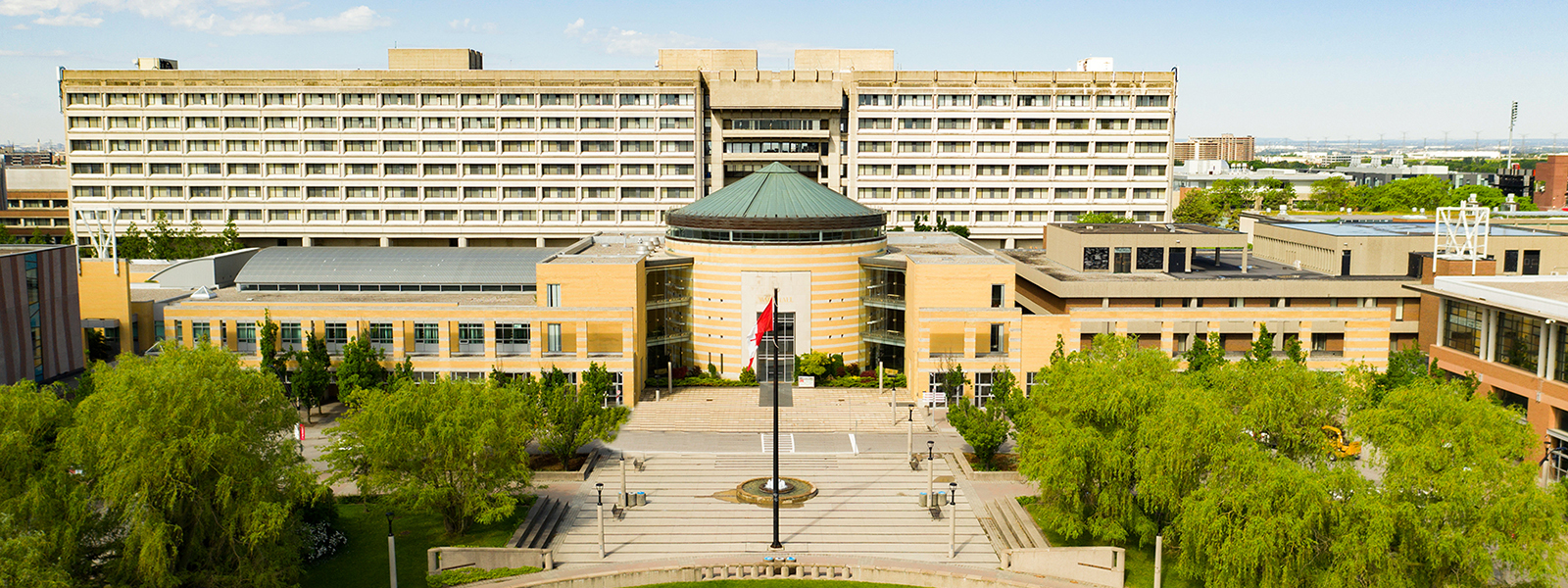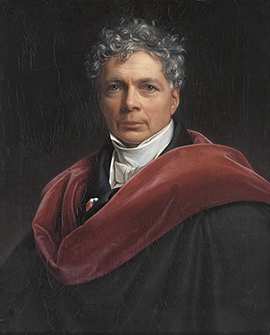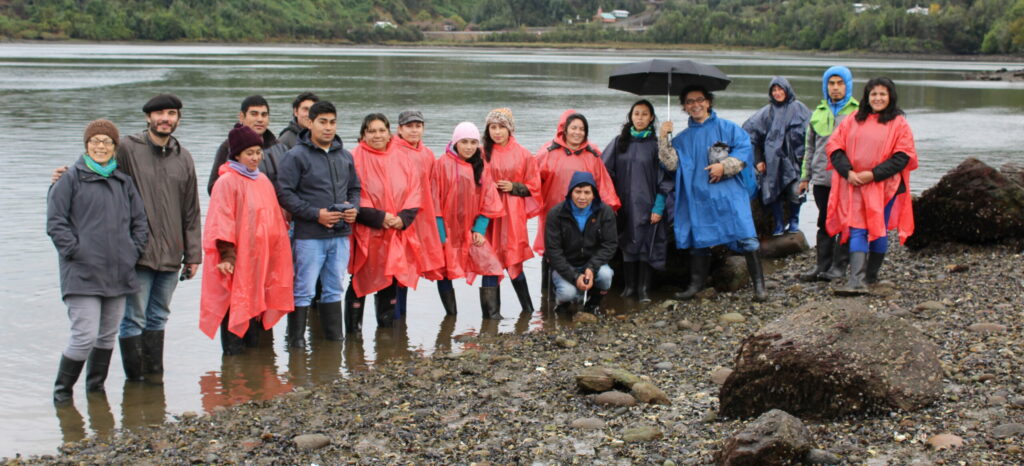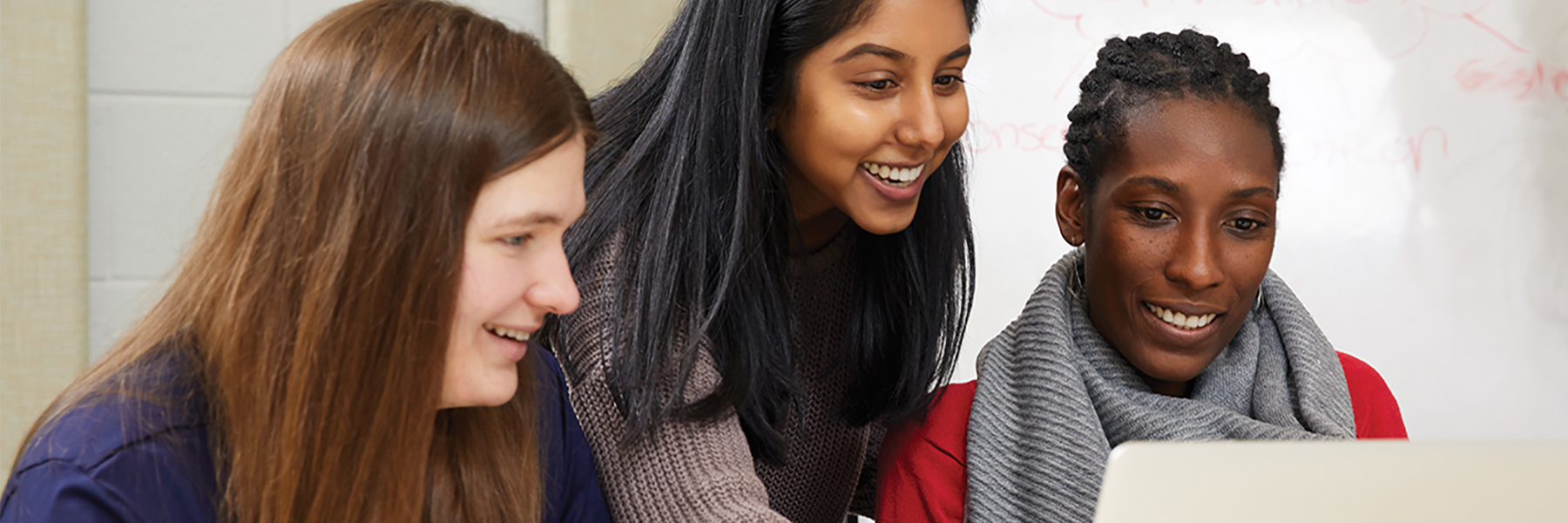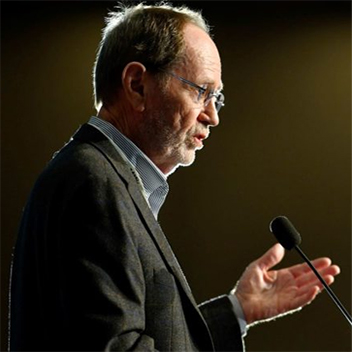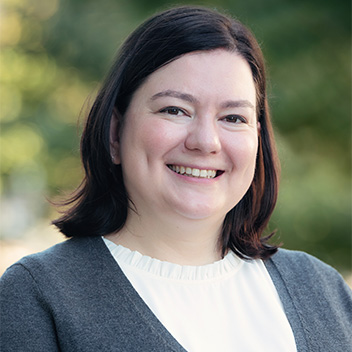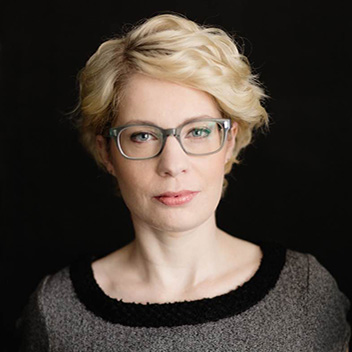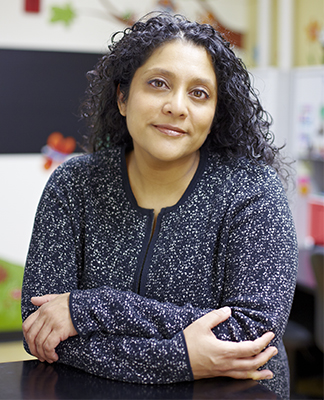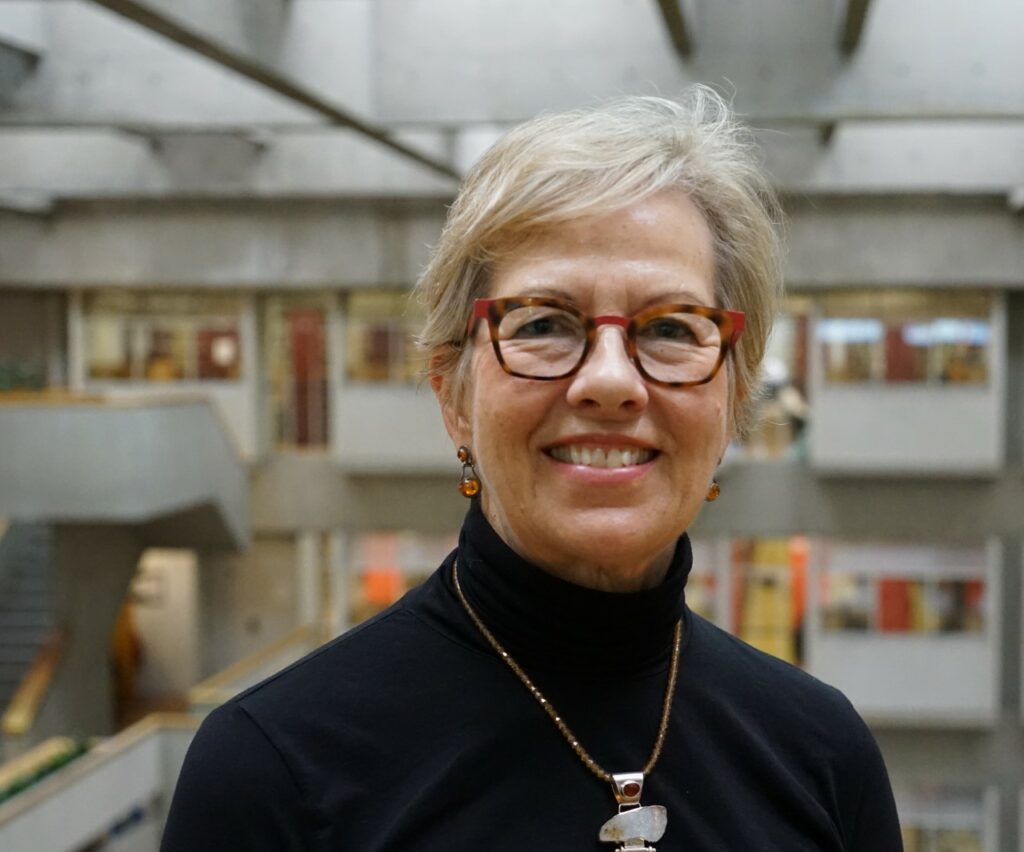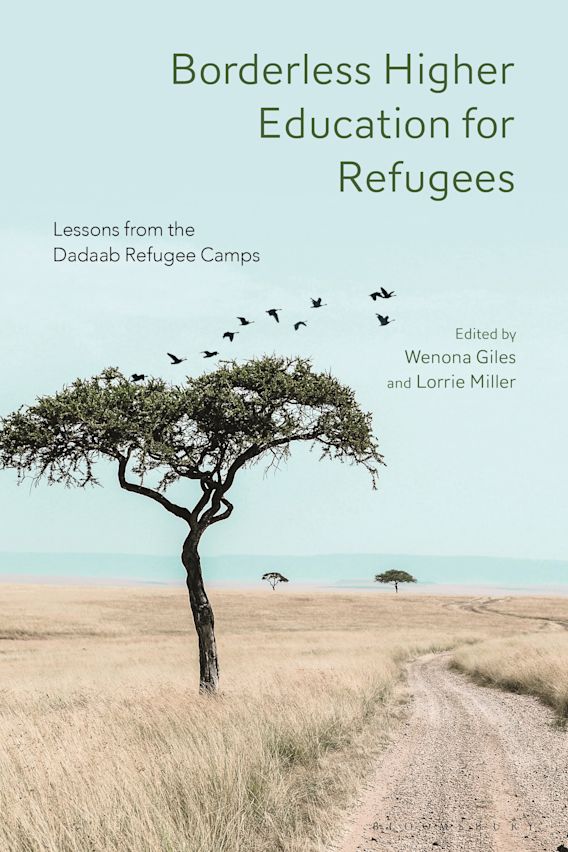Five individuals who have considerably enhanced the quality of learning for York students are recipients of the 2022 President’s University-wide Teaching Awards.
The faculty members who will receive an award at the 2022 Spring Convocation Ceremonies include: Faculty of Health Professor Michael Connor, recipient in the senior full-time category; Faculty of Education Professor Susan D. Dion, recipient of the senior-full-time category; Lassonde School of Engineering Professor Andrew Maxwell, recipient of the full-time faculty category; Faculty of Liberal Arts & Professional Studies (LA&PS) Professor Carolyn Steele, recipient of the contract and adjunct faculty category; and Janice Anderson of LA&PS, recipient of the teaching assistant category.
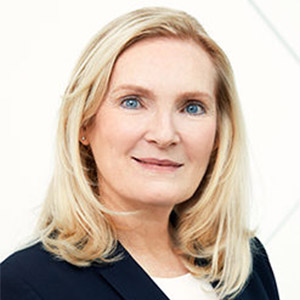
The purpose of the awards is to provide significant recognition for excellence in teaching, to encourage its pursuit, to publicize such excellence when achieved across the University and in the wider community, and to promote informed discussion of teaching and its improvement.
“York University has a well-established reputation for high quality teaching,” says York University President and Vice Chancellor Rhonda L. Lenton. “This past year was no exception, despite on-going challenges associated with the pandemic, as evident in the foundational work of our five extraordinary award recipients who found innovative ways to incorporate international activities, experiential education and technology-enhanced learning to inspire another generation of students to drive positive change in their communities and in the world. We are deeply grateful for the superb contributions of this year’s recipients as well as of all our course directors.”
The awards demonstrate the value York University attaches to teaching and recognizes individuals who, through innovation and commitment, have significantly enhanced the quality of learning for York students. The recipients are selected by the Senate Committee on Awards. Recipients receive $3,000, have their names engraved on the University-Wide Teaching Award plaques in Vari Hall and are recognized at convocation ceremonies.
The President’s University-Wide Teaching Award recipients are:
Full-time tenured faculty with 10 or more years full-time teaching experience

Professor Michael Connor was selected as a recipient in the senior full-time category. The nomination file prepared by Professor Angelo Belcastro speaks eloquently to Connor’s achievements in providing excellence towards student learning, in supporting teaching development, and in his dedication to program and curricular development as undergraduate program director (UPD) in the School of Kinesiology and Health Sciences. Connor has been influential in his role as UPD in ensuring excellence, quality, and exemplary service in leading the undergraduate program. Maintaining the quality of such a large program is time intensive, and yet Connor is noted to tirelessly make himself available to listen to, and address each student’s concern, no matter the request. A core feature to Connor’s teaching strategies has been to employ multiple teaching approaches such as technology-enhanced learning, critical thinking assignments, and experiential education which are all complemented by his clear passion for teaching.
Connor also strives to make course content relatable and meaningful to students, and to make each student’s voice heard by creating a safe and inclusive environment to ask questions. In addition to his role as course director for two demanding courses, and his responsibilities as UPD, Connor has been recognized as an outstanding mentor to undergraduate and graduate students, having taken the time to supervise 23 undergraduate students for independent research studies (including two summer Natural Sciences and Engineering Research Council of Canada Undergraduate Student Research Awards (NSERC USRA) students) and 17 MSc and PhD graduate students thus far. Connor serves as Chair on the Faculty of Health Committee on Examinations and Academic Standards, and as a member of the Faculty of Health Committee on General Education Requirements where he has been on the task force for developing effective teaching and learning practices at the faculty level.
Full-time tenured faculty with 10 or more years full-time teaching experience
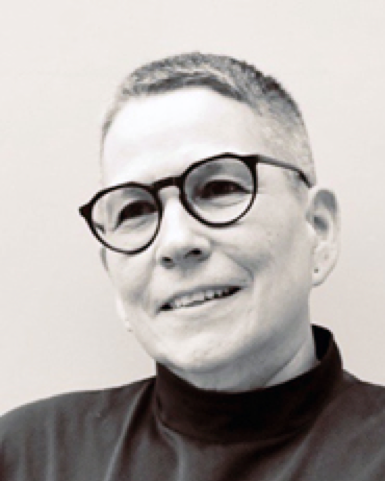
Professor Susan D. Dion was selected as a recipient in the senior full-time category. The nomination file prepared by Professor Sean Hillier describes Dion as a shining example as an educator, scholar and community advocate. Dion is also an internationally recognized Indigenous educational scholar at the cutting edge of the field. The letters of support for her nomination consistently referred to Dion’s teaching style as clear, respectful, kind and supportive, always asking the best of her students and making accommodations for those who need time to develop their thoughts allowing all to think deeply and authentically. Dion is noted for thinking and writing about her scholarship, teaching and service contributions as inextricably interwoven, and works to embody her life as a University professor through the themes of community, story, cultural practice and ceremony.
Dion sees cultivating relationships between the University and Indigenous Peoples is part of her responsibility. She has a particular focus on both what and how teachers teach and ways that systems operate regarding Indigenous education and on hearing and learning from the voices of Indigenous Peoples and their encounters within systems of education. During her 19 years at York University, she has worked with colleagues in the Faculty of Education, across the University and at universities across the country sharing stories of land, history and Indigenous perspectives. While she is committed to teaching non-Indigenous educators how to represent the humanity and diversity of Indigenous people’s experiences and perspectives, she is equally committed to creating opportunities for Indigenous students to access postsecondary education, and specifically to access programs that are relevant to their experiences, perspectives and needs.
Full-time faculty (tenured/tenure stream/CLA) with less than 10 years teaching experience
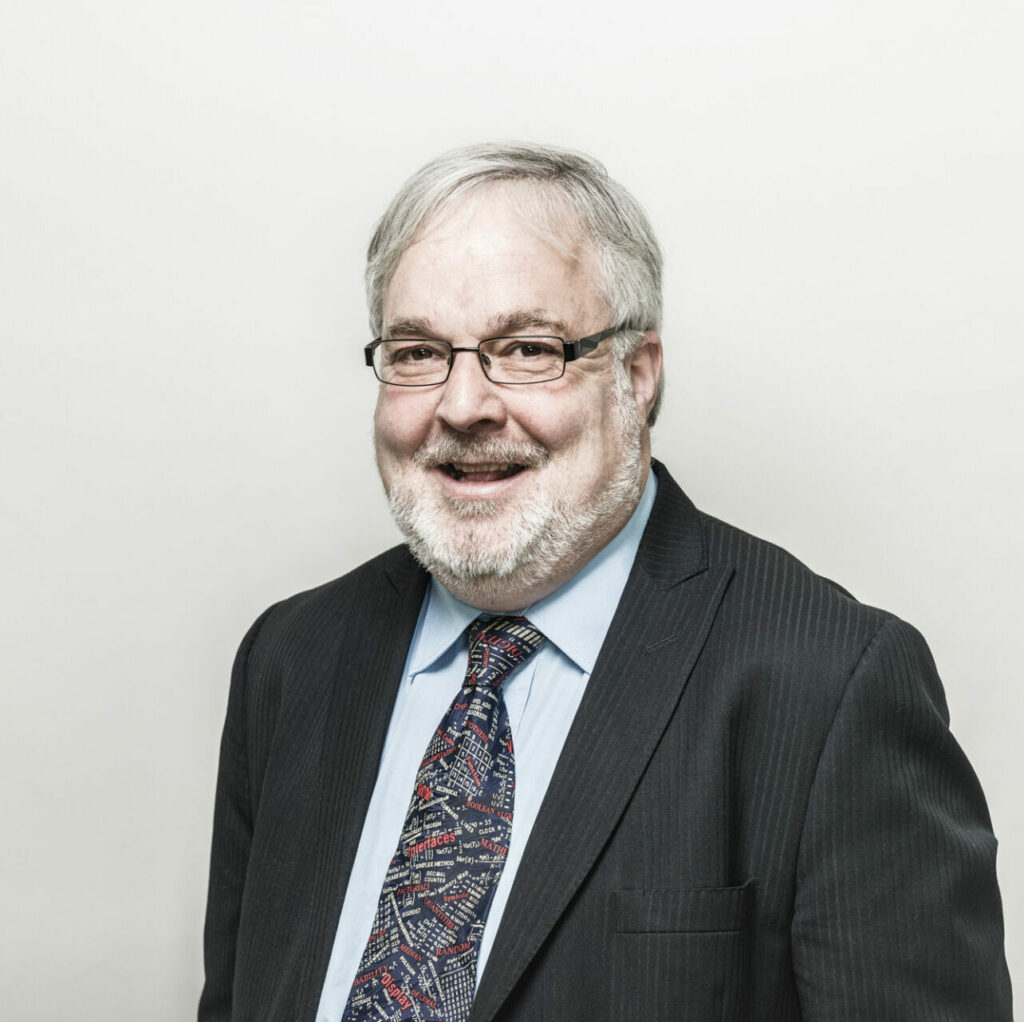
Professor Andrew Maxwell was selected as the recipient in the full-time faculty category. The nomination file prepared by Professor Alex Czekanski highlights Maxwell has played an active role on the undergraduate curriculum committee since joining Lassonde and has worked with many colleagues to enhance their course proposals and design. He is a leader in the deployment of new technologies in the classroom and online, including using TopHat, iClicker, PolleV, and Peer Scholar. His deep links in the community, both locally and internationally, have enabled him to invite multiple guests to the school, to stimulate student engagement, and inspire the next generation of engineers. In addition to mentoring undergraduate students and supporting graduate students, Maxwell’s role in the Bergeron Entrepreneurs in Science and Techology (BEST) Lab allows him to mentor and support over 20 budding technology entrepreneurs from Lassonde, the Faculty of Science and Schulich School of Business. He is also the mentor for Lassonde Engineering Society, Women in Science and Engineering (WISE), Lassonde Renaissance Engineering, and several other student activities.
Maxwell pioneers new approaches to student learning, such as encouraging first-year engineering students to participate in non-engineering activities across campus, and through active promotion of, and participation in activities such as StartUp Weekend, Engineering Competition, ElleHacks and Engineers Without Borders. Specifically, he has transformed the annual Mercier lecture to a bi-monthly Mercier seminar, so that over 1,000 students a year can meet with visiting guests. This activity is complimented by his active role in the community, where he has videotaped 500 guest lectures, which he not only shows in his classes, but shares with the broader academic community. Maxwell is a member of the evaluation committee for the Academy of Management’s Entrepreneurship Pedagogy Award, where he provides feedback and guidance to those developing new entrepreneurship pedagogies. He is also a member of the Entrepreneurial Engineering Consortium, focusing on integrating aspects of the engineering and entrepreneurship curriculum.
Contract and adjunct faculty
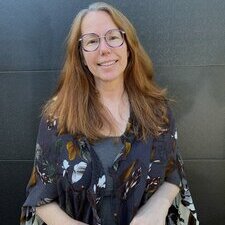
Professor Carolyn Steele is the recipient in the contract and adjunct faculty category. The nomination file prepared by Professor Bridget Cauthery speaks to Steele’s many achievements including developing new courses, consulting on curricular change, mentoring hundreds of students and stewarding numerous projects that have fundamentally shifted and reinvigorated teaching and learning at York University. She is also the recipient of many faculty teaching awards. In 2020, Steele received the Dean’s Award for Excellence in Teaching for LA&PS and the Department of Humanities Award for Teaching Excellence. Since 2019, she has been a member of the Research and Innovation in Teaching and Learning Subcommittee convened by the associate dean as part of the Teaching and Learning Council. Currently, Steele is part of the leadership team on a proposed three-year University-wide Academic Innovation Fund project to embed Sustainable Development Goals into York’s curricular vision at all levels. In each of these capacities, Steele is recognized as a pioneering educator with a strong vision for curricular change. It is Steele’s commitment to teaching boldly, to supporting students in developing a growth mindset, to championing work-integrated learning, and to developing innovative yet sound teaching and pedagogical practice through her scholarship of teaching and learning and greater University service that distinguishes her as an innovative faculty member.
This is further demonstrated in a letter of support provided by student Carolyn White which states, “Professor Steele’s approach to teaching and learning has contributed to my development in essential skills that will positively influence my future career, qualities such as critical reasoning, problem-solving and daring to take creative approaches to problems… In my view, she is exceptional as a teacher and a mentor in every aspect.”
Teaching assistants
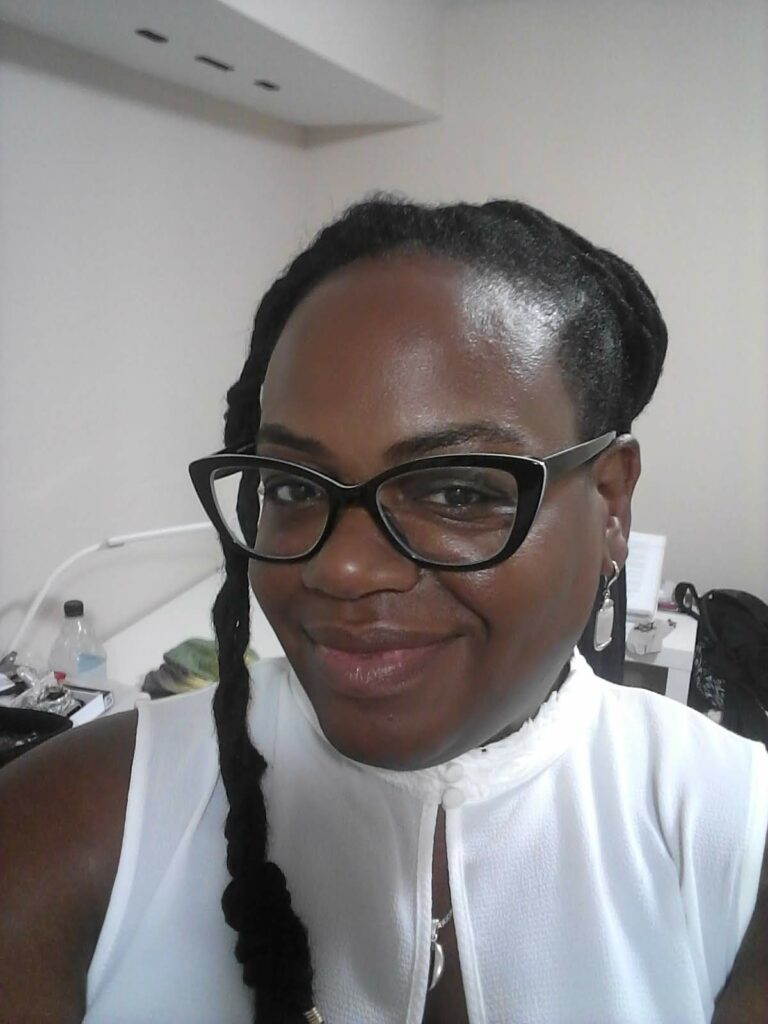
Janice Anderson was selected as the recipient in the teaching assistant category. The nomination file, prepared by York University alumnus Zamani Ra speaks to Anderson’s impactful and innovative practices which directly contribute to the enhancement of student success. Anderson listens to the immediate needs of her students through one-on-one and office hour sessions, advocates for necessary support, and develops individual plans of action for student success. Anderson’s practices informed skills development in student writing, the implementation of course-wide critical reading sheets, and support for colleagues and students navigating university systems during the emergence of major institutional changes due to COVID-19. Recognizing the different learning abilities of students, Anderson pivoted to uncommon methods of engagement to maintain student interest and support critical thinking to the students’ own amazement.
In a letter of support, student Chantelle Afriyie describes Anderson’s teaching approach as follows: “Care [is] an integral part of her teaching pedagogy. Students are encouraged to see themselves as valuable contributors to humanity first and foremost who have been afforded the privilege to share communal space in a university classroom and participate with their ‘whole self.’” Anderson created a recycling course material program that connected former students with new students. At the beginning of the semester, she held a raffle for new books and set students on a path to pay the learning forward by opting into a shared book/give back program which demonstrates true community building with other equity-seeking groups across intersectional lines. Highlighted in the letters of support in the nomination file is Anderson’s innate ability to safely engage emergent ideas from students and ensure they know their value in world-making practices.
In previous years, four awards are offered each year in the noted categories. Following on past practice, the Committee came to the decision that two professors would share the award for full-time tenured faculty this year. The Committee found the nomination files for this category to be particularly strong and determined that both nominees are equally deserving of the award.
In keeping with the committee’s commitment to valuing diversity and equity within the York community, the committee made sure to discuss these values during the adjudication process.



